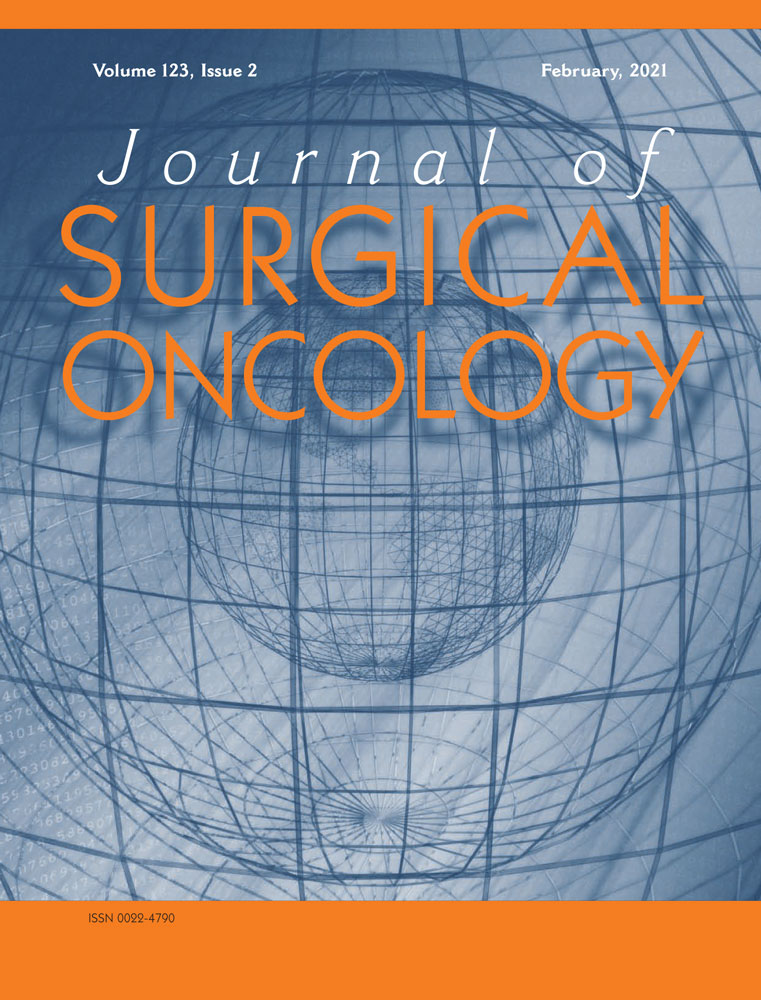Duodenal, ampullary, and pancreatic neuroendocrine tumors: Oncologic outcomes are driven by tumor biology and tissue of origin
Abstract
Background
Periampullary neuroendocrine tumors (NETs) arise from the duodenum, ampulla, and periampullary pancreas. Duodenal and ampullary NETs are rare and may have distinct biologic behavior from pancreatic NETs (P-NETs). We examined the outcomes of these entities.
Methods
An institutional database was queried for patients undergoing resection for pancreatic head, duodenal, or ampullary NETs from 2000 to 2018. Patients with MEN1 syndrome or follow up less than 12 months were excluded.
Results
Three hundred and ten patients were identified. Tumor locations were ampulla (n = 15), duodenum (n = 35) and pancreas (n = 260). Median follow-up and recurrence-free survival (RFS) were 60.9 (interquartile range [IQR]: 34.8–99.3) and 171.7 (IQR: 84.0–NR) months. Clinicopathologic data and survival outcomes were similar for duodenal and ampullary NETs (RFS: p = .347 and overall survival [OS]: p = .246) and were combined into an intestinal subtype (IS) group. There were no differences in OS or RFS when comparing IS-NET and P-NET. On multivariate analysis, tissue of origin was not associated with risk of recurrence. The current American Joint Committee on Cancer staging guidelines, which account for origin tissue, were predictive of outcomes for all subtypes.
Conclusion
Tissue of origin does not appear to impact long-term outcomes when comparing IS-NETs and P-NETs. The AJCC staging system offers good discriminatory capacity in the context of the tissue type.
Open Research
DATA AVAILABILITY STATEMENT
The data that support the findings of this study are available on request from the corresponding author. The data are not publicly available due to privacy or ethical restrictions.




